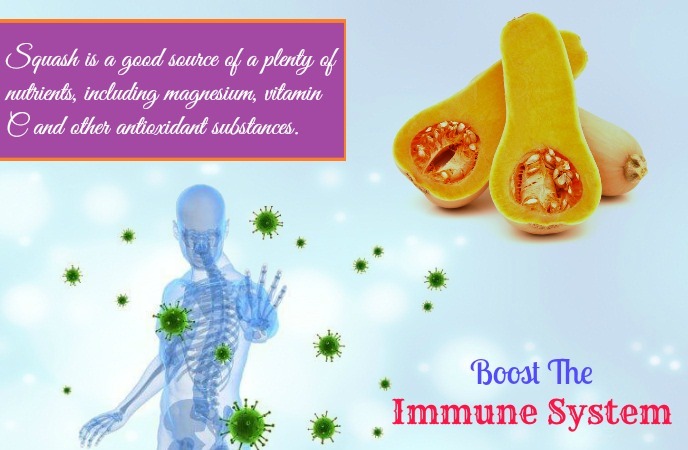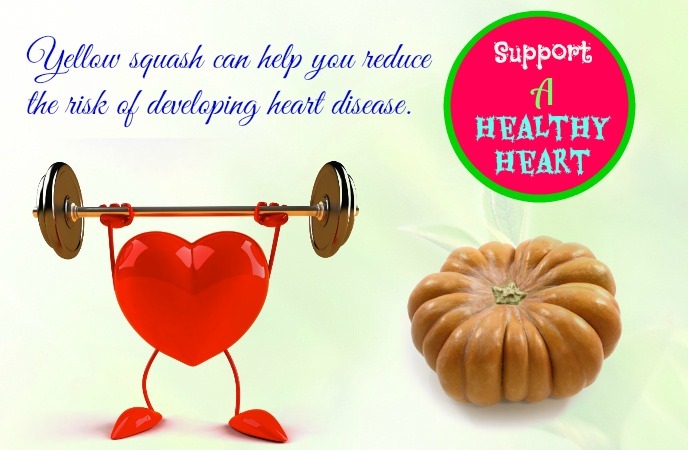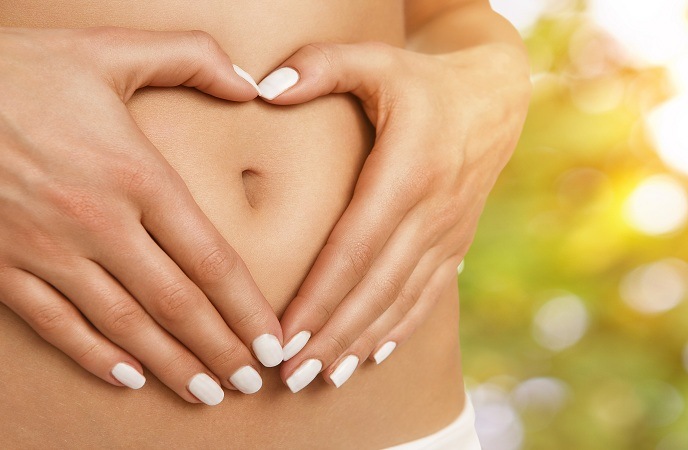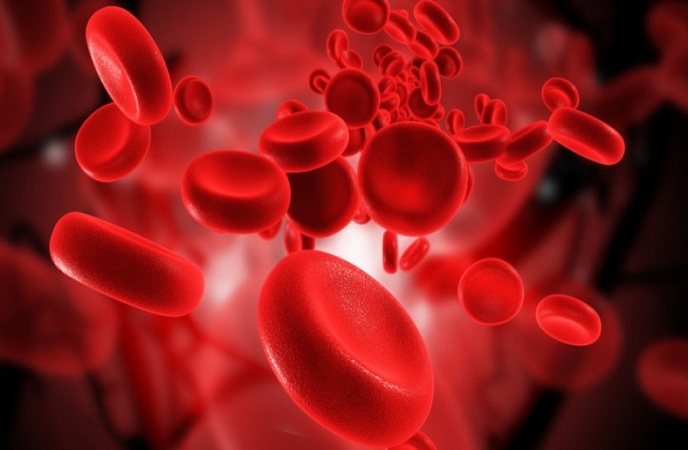Squash is one of the most delicious vegetables throughout the world. This vegetable brings a variety of health benefits for human. Different kinds of squash have different health and medicinal benefits.
Squash is an interesting veggie as it contains a number of different kinds of veggies, including zucchinis, pumpkins, courgettes as well as marrows. They have a variety of overlapping features and the individual species include plenty of varieties, including hubbard squash, buttercup squash, cushaw squash, acorn squash, pumpkins, zucchini, summer squash, winter squash, autumn squash and more.
The List Of Health Benefits Of Squash – List Of The Best Advantages That Squash Bring About:
The health benefits of squash are from its organic compounds, minerals and vitamins. It includes a large amount of vitamins A, C, E, B6, niacin, pantothenic acid, thiamin and folate. Besides, squash also contains potassium, magnesium, manganese, phosphorous, copper, calcium as well as iron. It is also a great source of carotenoids as well as other important antioxidant and anti-inflammatory substances. Now, you keep your eyes on the best health benefits of squash on the section Nutrition Facts of the site Nutrition Kit and then try to remember them for good.
1. Boost The Immune System

Squash is known as a good source of a plenty of nutrients, including magnesium, vitamin C and other antioxidant substances. These minerals and vitamins are vital antioxidant components to the body, which will aid in neutralizing free radicals throughout the body. Remember that free radicals are dangerous products of the process of cellular metabolism, and they are related to a great number of illnesses, including heart disease, cancer as well as premature aging. Moreover, squash has high vitamin A content, including lutein and zeaxanthin. All of them will help the body boost its immune response and fight against foreign substances and free radicals caused by the body. Thus, you should consider adding squash to your diet to reap these benefits.
Read More: Top 20 Health And Nutritional Benefits Of Garlic
2. Prevent Cancer Cell Growth

Squash will help block cancer cells from communicating and acting autonomously. A study shows that cell communication will allow the growth-inhibiting signals to change from normal to abnormal cells. In fact, beta-carotene as well as other carotenoids found in squash can help to prevent the cancerous cell growth. It is also a good source of vitamin C that helps prevent cancer and premature aging. Also, it contains vitamin A, which brings protection against oral cavity and lungs cancers.
Learn More: 36 Best And Worst Foods For Asthma And Allergies
3. Benefits Of Squash – Control Blood Pressure

As you know that getting more potassium can help lower the risk of getting high blood pressure or decrease the blood pressure in patients who have high blood pressure. Winter squash is a good source of potassium for you. For example, a cup of Hubbard squash provides nearly 16% of the amounts of potassium you need each day. Moreover, this vegetable also has magnesium, which helps with the potassium absorption. Also, it contains zinc, which is very important for maintaining normal blood pressure in the body.
In fact, controlling blood pressure is one of the health benefits of squash that you should know and remember for good.
Learn More: Top 35 Best And Worst Foods For Diabetes Patients
4. Support A Healthy Heart

Yellow squash can help you reduce the risk of developing heart disease. This is because it has healthy fat and no cholesterol. Also, it contains magnesium that has been proven to help in reducing the risk of stroke and heart attack. Potassium combined with magnesium aid in reducing high blood pressure, while vitamin C and betacarotene help in preventing the oxidative process of cholesterol. These minerals block the growth of atherosclerosis by preventing the production of oxidized cholesterol in the blood vessel walls. The folate found in yellow squash will aid in removing the homocysteine, which is responsible for stroke and heart attack. Besides, yellow squash is high in folate, which will lower the cholesterol levels, resulting in reducing the risk of getting atherosclerosis as well as heart disease.
Learn More: Top 30 Best Healthy Food For Strength
5. Support Healthy Bones

The health benefits of squash that you should know must include supporting healthy bones. Yellow squash has a large amount of vitamin C and manganese. While vitamin C helps with the production of collagen, which is important for building bone mass. Manganese helps to maintain healthy bone structure, enzyme creation, calcium absorption as well as bone building. It also helps to boost the mineral density of spinal column. Besides, squash also contains magnesium, which contributes to the health of bones and joints. Other minerals found in squash include folate, iron, zinc and phosphorus, which contribute to the health of bones and bring protection against osteoporosis.
6. Reduce PMS Symptoms

Summer squash is known as a great source of manganese. A study showed that women who ate high content of this mineral daily, suffered from lesser cramps and mood swings than other people. Therefore, adding squash to your daily diet is a good way to increase the consumption of magnesium and reduce PMS symptoms.
7. Reduce The Risk Of Gallstones
Increased levels of triglycerides and decreased levels of HDL cholesterol will contribute to the higher risk of developing gallstones. To reduce the risk of gallstones, you should try to add magnesium to your daily diet. A cup of acorn squash contains about 28% of the daily recommended allowance of this mineral.
In fact, it is actually one of the nutritional benefits of squash that you should not skip out, but try to add this vegetable to your daily diet to lower the risk of getting gallstones.
8. Benefits Of Squash – Good For Weight Loss

Summer squash is a good choice for you if you are trying to lose your weight as it is very low in calories and fat-free. A cup of yellow squash has nearly 36 calories, 1g of protein, 7g of carbohydrates and less than 1g of fat apart for being cholesterol-free. Squash derives its several calories from its low carbohydrate content. Therefore, if you are on diet, you can easily replace vegetables like corn and potatoes that contain higher calorie content with yellow squash.
9. Good For Eye Health
Summer squash has high content of lutein. Dietary lutein is important for preventing the occurring of cataracts as well as macular degeneration, which may lead to blindness. Add a cup of summer squash to get about 2400 micrograms of lutein. Carotenoids that are found in winter squash also help you reduce the risk of getting macular degeneration. More importantly, a single serving of squash contains more than 4 times your daily vitamin A requirements. Vitamin A is important for good eye health. High amounts of vitamin A have been linked to reduced risks of glaucoma and other vision issues.
10. Maintain Prostate Health

Yellow squash is good for reducing the symptoms of benign prostatic hypertrophy. This condition is characterized by an enlarged prostate gland that results in difficulties in both sexual and urinary functions. In fact, maintaining prostate health is one of the best benefits of squash that you should know and then try to consume this vegetable as soon as possible.
11. Benefits Of Squash – Prevent Constipation
One of the health benefits of squash that you should know is that eating squash can help you prevent constipation. The high-fiber content of squash not only aids in the excretion of toxins from your body in order to boost colon health, but it also prevents constipation. Thus, in case you have constipation, add some summer squash to your daily diet. A cup of yellow squash contains about 2.52g of fiber.
12. Meet Your Body’s Protein Requirements

A lot of people use animal meat to meet the protein requirements of the body. Nonetheless, you often get unhealthy fat with animal meat; whereas, acorn squash can be served as a veggie source of protein. While the protein content is not high, you can consume it in order to supplement your protein consumption.
Continue reading this entire article and discover the world of nutritional benefits of squash. And then, try to add this vegetable to your daily diet to reap all of its benefits.
13. Fight Diabetes
Proper metabolism of sugar is the best way to control the symptoms of diabetes, a common disease, which millions of people all over the world are suffering from. The dietary fiber found in this food helps in fighting increased blood sugar levels, thus helping to fight the onset of diabetes. Moreover, squash is a good source of B-complex vitamins, which are good for metabolic activity. So, you should try to eat more of this vegetable, if you are suffer from symptoms of diabetes.
14. Provide A Boost To Digestion

You should add fiber-rich foods to your diet to boost your body’s digestion process. Acorn squash has a large amount of dietary fiber, and you should add it to your diet in order to facilitate your bowel movements. The consumption of this vegetable can help reduce symptoms of digestion-related conditions like boating.
This is one out of the list of nutritional benefits of squash that you should know and then try to consume more of this vegetable to provide a boost to digestion.
15. Reduce Cholesterol Levels
Squash is rich in fiber, so it can maintain and lower your cholesterol levels. As you know, cholesterol is one of the main causes for stroke and cardiovascular disease. Moreover, this vegetable has high fats, caloric protein and mono-unsaturated fatty acids, which reduces bad LDL cholesterol and simultaneously increase good HDL cholesterol in the blood stream. Therefore, you can keep your cholesterol levels healthy if you add squash to your diet on a regular basis.
16. Benefits Of Squash – Prevent Asthma

As you know that beta-carotene is an antioxidant, and it is present in high content in squash. Studies have shown that people who have a high content of beta-carotene will have a lower risk of getting asthma. Therefore, now you know this veggie can help to prevent the occurring of asthma. Actually, it is on the list of nutritional benefits of squash that you should not look down, but try to add this powerful vegetable to your diet to prevent asthma.
17. Improve The Contraction Of Muscles And Stimulate Nerve Impulses
Squash has important electrolytes, including potassium, calcium and magnesium. They help with the contraction of muscles and simultaneously help in stimulating nerve impulses. Besides, these minerals are also useful if you have muscle cramps. Potassium aids in regulating the heartbeat while sodium helps in stimulating muscle contraction. On the other hand, calcium takes responsibility for their contraction; whereas magnesium helps in relaxing heart muscles.
18. Anti-Inflammatory Ability

Although mentioning inflammation often includes arthritis or gout, inflammation can turn up throughout the body, and it is also a symptom of other health problems. The anti-inflammatory ability of squash is caused by the occurring of omega-3 fatty acids, carotenoids and anti-inflammatory polysaccharides. Although anti-inflammatory affects can extend to gout and arthritis, studies have linked its effects to reducing duodenal ulcer reduction.
19. Good For Lung Health
The vitamin in richest quantities within this vegetable is vitamin A, and according to studies, this vitamin has linked to a reduction in emphysema, especially for people who are exposed to carcinogens. There is also a wonderful beta-cryptoxanthin that has been known to cause a reduction in the occurring of lung cancer. As you know that lung cancer is a common forms of cancers, so an increase in kind of squash that contains vitamin A can be an important protective step.
20. Benefits Of Squash – Increase Blood Circulation

Many different varieties of squash contain high levels of copper and iron, which are important components of red blood cells. Thus, by adding enough squash to your diet, you can reduce the risks of getting anemia and you can increase blood circulation, which can increase brain function, oxygenation and overall energy levels.
21. Good For Pregnant Women
Squash contains folate, which has been known as a good vitamin for pregnant women. Folate is integral in growing the neural aspects of infantile health. In fact, neural tube defects have been linked to a folate deficiency, so consuming squash is always a good choice.
This is also among the health benefits of squash, so you should try to add this vegetable to your diet, especially if you are pregnant.
22. Maintain Healthy Skin

We all want to have a healthy skin. However, the external factors such as exposure to harmful chemicals, UV rays, unhealthy lifestyle and illnesses, etc. have their own effect on the skin, causing many skin problems. A balanced diet helps in offering essential nutrients that may keep the kin healthy. In general, vegetables are good for skin health and squash is not an exception. Being rich in minerals, vitamins, and antioxidants, squash can help you maintain integrity and proper health of skin.
23. Benefits Of Squash – Prevent Skin Aging
One of the beauty benefits of squash is protection against the damages caused by sun exposure as well as preventing dehydration. In addition to this, squash contains high content if vitamin C, which may fight against free radicals in the body, hence preventing signs of skin aging such as wrinkles, fine lines and pigmentation. Adding squash to your daily diet will keep your skin hydrated.
24. Promote Hair Growth

Hair problems are caused by many factors and some of them are exposure to harsh chemicals, prolonged illnesses and deficiency of essential nutrients. They can cause hair problems such as dandruff, hair loss, premature graying and hair thinning. Some certain vegetables can stimulate hair growth and squash is a good idea. This vegetable is rich of beta-carotene, which is known as a safe, non-toxic vitamin A form. This nutrient is vital for forming a healthy hair. It prevents hair loss and promotes optimum hair growth. Therefore, adding squash to your diet is a good way for maintaining a healthy hair. Actually, promoting hair growth is one of the beauty benefits of squash, so you do not skip out it, but add this healthy vegetable to your diet and enjoy a healthy hair.
25. Treat Arthritis
Squash seeds are known to be useful to treat arthritis. They contain anti-inflammatory properties, thus they may help reduce pain, stiffness and swelling caused by arthritis. More importantly, consuming this food does not have any unwanted effects such as increased damaging fats, peroxides, lipids, which line the joints and worsen symptoms of arthritis.
26. Treat Depression And Stress

Squash seeds have l-triptophan, an amino acid, which may help you treat depression. Squash also contains glutamate, which is important for synthesis of GABA. It is known as an anti-stress chemical inside the brain that may help reduce irritability, anxiety and other neurotic problems. Moreover, the seeds have the amino acid glutamate and tryptophan, which may get converted into niacin, a natural sleeping pill. Additionally, eating squash is a natural way to reduce hot flashes, headaches and improve mood swings in women.
27. Benefit Of Squash – Sexual Benefits
This is the very last yet not the least one out on the list of the best health and nutritional benefits of squash that all readers should not look down yet make use as soon as possible for good!
Squash has many sexual benefits and it is considered as the ‘bedroom powerhouse’. It works as a sexual stimulant and it is prostate-friendly. Eating it will help to keep prostate functioning healthy and increase sexual performance. Besides, this has phosphorous that is very important for healthy erections as well as a strong libido. Also, zinc found in the squash seeds maintains healthy sperm production and the sex hormone testosterone in men. It also controls sperm release during urination and has the amino acid, called Myosin for energy and muscular contractions.
Squash is commonly used as a fresh element of salads, or they can be used to make baked vegetables with meat, fried, or used as a base flavor for veggie soups. The squash seeds are edible and they can be made into a variety of forms or extracted oils. The tendrils and shoots of squash can also be used as veggies in a salad.
The list above reveals 27 best advantages that squash brings to human life. If you have any question to ask us about the content of this writing, feel free to leave your comments below!








